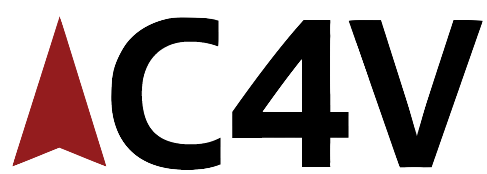Promoting Democratic Values to Prevent Democratic Backsliding

Even before the Covid-19 pandemic, democracy was under threat. That threat continues. Around the world, the repression of peaceful protests, the use of extra-constitutional measures against periodic and free elections, the troubling reality of unequal protection under the law, and much more have come to characterize the severe negligence of core democratic practices, threatening the democratic system and, consequently, undercutting human development.
The pandemic has aggravated these threats, as authoritarian and sometimes even democratic leaders have taken advantage of the crisis to consolidate power through emergency laws that weaken or ignore human rights and other core democratic principles. Furthermore, in the current digital era, a growing wave of disinformation represents an increasing threat to transparency and accountability in all democratic processes.
In this scenario, many strong voices have denounced a general democratic backsliding across the world, even among societies considered mature democracies. This phenomenon is defined by Nancy Bermeo (2016) as “the state-led debilitation or elimination of the political institutions sustaining an existing democracy”. Examples can be seen in both the developed world (the Global North) and in the less developed countries (the Global South), showing that the construction and maintenance of the democratic system is a complex process that – if not done based on core democratic principles – is likely to collapse. The urgent need to prevent democratic backsliding demands that the promotion of core democratic values must be explicitly included in the design and implementation of development strategies.
The three core democratic values are liberty, equality, and justice. All three of these values constantly interact with each other in an intertwining dynamic where, if one core value is neglected, then the others are negatively affected too. In that sense, strengthening democratic values through different tactics such as education at all levels, civic participation, accountability, and similar other means, must be a horizontal effort. The solution is balancing all human rights, rather than trying to find which human right is more important than the others so that some rights can be traded away or ignored. All three core democratic values – liberty, equality and justice – as well as all human rights – must be equally protected. When we neglect one value, we are putting at risk the whole democratic system.
Respecting democratic values is not only critical to sustaining the democratic system, but such respect is also a means to an end in the context of human development, defined by the UNDP (2002) as the process through which choices are enlarged. Such “enlargement” means the formation and enhancement of human capabilities and the creation of opportunities and freedoms, in order for human beings to achieve the full productive and creative lives which they seek. Within this framework, democratic values are both the driver and the means to that end, and democracy is a goal itself as well.
Regarding the first aspect, equality, justice, and liberty are central means for people to achieve their full potential to lead the productive and creative lives that they value, i.e., being the means to achieving human development and well-being. And as already noted, democracy is a valuable goal itself within the human development process, because a stable and mature democratic society enables citizens to achieve the development needs and aspirations that they seek.
One example of the importance of including democratic values in strategies to prevent the erosion of political institutions can be found in the sustainable solutions now being deployed to counter disinformation within democratic processes, particularly as a form of gender-based online political violence. Disinformation is false or erroneous information intentionally disseminated and created to mislead and cause harm to a person, group or organization, referring to both fraudulent informational content (fake news) and misleading content, hate speech, or deliberately untrue speeches (false speech). A similar example can be seen in non-deliberate informational errors of the media or journalists (misinformation) (Rodríguez, 2019).
Currently we are witnessing many highly coordinated disinformation campaigns targeted at women who hold particularly key positions in democratic institutions, as is happening with women members of the Constitutional Convention in Chile. The sources of these campaigns are unknown, however, media companies linked to big interest groups often amplify them. In this particular case, the perpetrators and disinformation spreaders not only intend to delegitimize women constituents, but they also seek to undercut the whole constitutional process in their efforts to prevent systemic change. Such manipulation undermines democracy. A preliminary study run by the Women’s Observatory Against Disinformation and Fake News showed that 96.8% of the Chilean congresswomen surveyed said that they have been victims of disinformation as a form of gender violence (Fundación Multitudes, 2021).
Perhaps the best chance that society has to prevent disinformation and the exclusion of women in decision-making processes is situated in robust research. Currently there is little to no data about the impact that disinformation, including misinformation, has in democracy when it is used as a form of violence against women in political life, particularly in the non-western countries. Most of the existing information consists of qualitative research carried out in the United States, Europe and Canada. Based on evidence, sustainable solutions through education in media literacy and democratic values can be developed to prevent democratic backsliding.
Defending democracy is a global challenge that requires the participation of all relevant responsible actors of society. All must now join efforts to prevent the debilitation and consequently elimination of the political institutions that sustain democracy.
References
Bermeo, N. (2016). On Democratic Backsliding. Journal of Democracy 27(1), 5-19. doi:10.1353/jod.2016.0012.
Fundación Multitudes. (2021). Survey on Disinformation to Women Parliamentarians of Chile. Retrieved from: https://fundacionmultitudes.org/proyectos/observatorio-de-mujeres-contra-la-desinformacion-y-fake-news/
United Nations Development Programme. (2002). Arab Human Development Report 2002. Retrieved from: http://hdr.undp.org/sites/default/files/rbas_ahdr2002_en.pdf
ByPaulina Ibarra.
Executive Director, Fundación Multitudes, and
Chair, Civil Society Pillar of the Community of Democracies
Santiago de Chile
Photo credit: Teraphim, 1272629390


